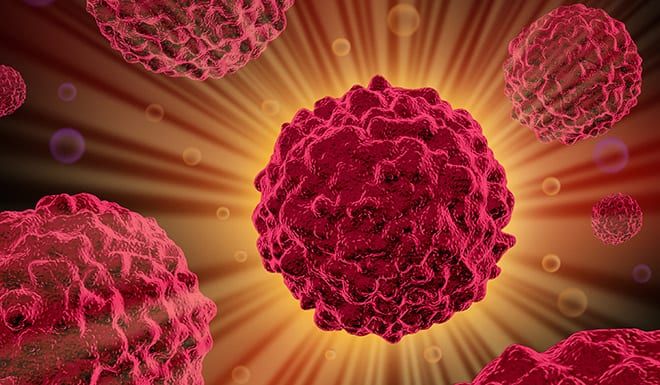
The Integrative Oncology Unit at Biosalud Day Hospital
Biosalud Day Hospital has a specific Integrative Oncology unit. The purpose is to complementing conventional medicine treatments with biological medicine and join forces to increase the chances of overcoming the disease.
To design the complementary treatment, the first thing we do is to analyse the causes that have triggered the cancerous process. Our approach is based on intervening on the physiology of the cancer cell to weaken it, while activating the immune system.
Video:
Integrative oncology makes it possible to enhance the effectiveness of conventional treatments such as chemotherapy and minimise their side effects by intervening in three fundamental pillars:
- nutritional, immunogenetic and immunoactivating treatment.
- detoxification, oxygenation and pH control.
- always take into account the psycho-emotional perspective, which is so important for a good quality of life.
Integrative oncology strategies
Integrative oncology takes a more holistic and long-term approach to the disease, paying more attention to the overall health of cancer patients.. Thus, integrative oncology strategies such as nutrition, exercise, stress management and specific supplements can reduce inflammation and boost immunity, which may reduce the risk of relapse.
Conventional oncology has focused primarily on finding "better ways to kill the tumour - usually with large, and sometimes lethal, toxic consequences for the host". Integrative oncology, on the other hand, focuses on the interaction between the tumour and its immediate biochemical environment in the body, often referred to as the "terrain".
"For almost any chronic disease, inflammation is the source," says cancer researcher and biochemist Bharat Aggarwal, PhD, of the University of Texas.
Fortunately," says Dwight McKee, a thought leader in the field of integrative oncology. the microenvironment in which tumour cells live is finally becoming a focus for laboratory researchers.€
What all integration strategies have in common is the idea that attacking the tumour is often not enough because inflammation could, at any time, set the stage for cancer relapse.
Nutrition to fight cancer
One of the most effective tools that integrative oncology practitioners use to reduce inflammation and boost immunity is also the simplest: basic nutrition.
In addition to increasing our intake of anti-cancer foods, such as cruciferous vegetables, garlic and onionsone of the most important dietary changes that any of us can make is to drastically reducing refined sugars and refined carbohydrates that directly fuel the growth of cancer.
Herbs and spices also have anti-cancer potential, such as turmeric, which can block cancer-causing metabolic pathways and halt tumour proliferation, according to a study published in March 2012 in the journal Molecular Nutrition & Food Research.
In his latest book, Inflammation, Lifestyle and Chronic Disease: The Silent Link (CRC Press, 2011) Aggarwal highlights other dietary recommendations, including the consumption of fresh (not concentrated) orange juice, which has "profound anti-inflammatory effects". Other studies point to the potent anti-inflammatory power of resveratrol, found in red wine and grapes, which suppresses so-called dangerous inflammatory cytokines.
One of the characteristics of integrative oncology is that each cancer patient is unique and needs a specific botanical-nutritional plan for success.
Stress relieving cells
Chronic stress, which triggers dangerous fight-or-flight hormones, can be as inflammatory as poor nutrition.increasing the risk of cancer.
For example, in a 2008 study published in Clinical Cancer Research, Wenzel L.B concluded that cervical cancer patients have "severely compromised quality of life" and experience significant stress as a result. Research shows that chronic unrelieved stress can affect patients' biochemical terrain and, if left unaddressed, can leave their immune system and biology in turmoil.
The starting point for many relaxation treatments is the deep abdominal breathingThe next step is simply to find a comfortable sitting or lying position and to take deep, slow, rhythmic breaths. The next step usually involves progressive muscle relaxation.
Leaving anxiety behind, even for a while, Block says, relieves chronic tension and reduces cortisol and other stress hormones that can contribute to disease progression.. Any technique that helps the patient to focus on the present, drowning out stressful thoughts to achieve deep relaxation, can work: yoga, meditation, tai chi or journaling, just to name a few.
Block also recommends the cognitive reframing - an approach that supports patients in changing the way they often react to physical symptoms, social interactions, troubling communications and even negatives such as self-talk.
Fighting the tumour and helping the patient
Integrative physicians believe that complementary tools in the fight against cancer work best when combined with conventional oncology techniques.
For integrative oncologist Dwight McKee, this requires careful analysis of each tumour.. "What matters is not where the tumour started," he says, "but the tissue in which it currently resides, as well as its gene expression, signalling networks and drug sensitivities. Breast cancer that has moved to the bone is qualitatively different than breast cancer that has moved to the brain.
McKee also struggles to determine how aggressively a cancer spreads: "Some tumours are quite indolent and spread slowly. In such cases, simply changing the terrain - the biology of the surrounding tissue - can stop it from progressing. But at the other end of the spectrum are tumours that are so aggressive that they will take over no matter how the terrain is altered€.
McKee examines tumour samples using a technique called cytometric profiling.The patient's tumour biopsies are exposed to dozens of chemotherapy drug candidates and targeted agents, along with some botanicals. Isolates such as artemisinin or oleander extract, immune mediators and chemotherapy-enhancing drugs. The tumour-killing capacity of each drug is then quantified in the laboratory.
Controlling inflammation is often at odds with aggressive conventional interventions - surgery, radiation, chemotherapy. The most aggressive tumours require invasive and toxic treatments. However, the treatments produce inflammation in the field, setting the stage for the cancer to recur.
One strategy McKee uses to lower inflammation is the tumour ablationa technique that involves getting a needle into each tumour deposit that can be found and killed by freezing or heating.
Practising prevention
Integrative oncology has achieved real success in extending conventional strategies, but its most important advances stem from prevention.

"Just because you've achieved remission through removal of the primary tumour doesn't mean you're home cancer-free," explains Keith Block. "Although conventional cancer treatments often eliminate much of the disease burden, micro-metastases may have already migrated and seeded other parts of the body.
"So for my patients, complete remission does not mean the end of treatment. Instead, it means the beginning of the containment phase, when we focus on stopping or slowing down growth. "

